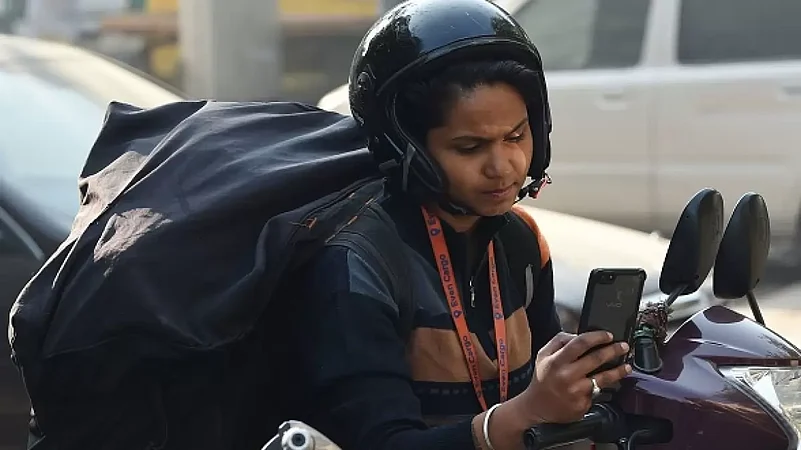The gig economy accounts for over 1.4 million jobs in India, including delivery staff, drivers, beauticians and maintenance workers, as per BetterPlace, a platform for blue-collar workers. Led by companies like Uber, Ola, Swiggy and Zomato, gig work provides the option of short-term contracts or freelancing to its drivers and delivery personnel.
With more women joining the gig workforce, they continue to be paid less than their male counterparts for the same jobs. According to TeamLease, there is an eight to 10 per cent salary disparity between male and female delivery executives, ranging between Rs 15,000 and Rs 30,000 per month. As much as 60% of the jobs are in food tech, 30% in e-commerce and courier services and 10% in hyperlocal delivery, it said.
Other than pay disparity, despite women’s increasing participation in the gig economy, gender-based discrimination, unruly customers, abrupt change in company policies, job insecurity and safety issues remain a growing and unresolved concern for women. 30 year old Tinku Das, working for a food delivery apps shared that a man asked herto come up to his home and passed lewd comments when she was delivering food there on Holi. "I quickly called the app support and they took the matter up with him," she was quoted saying.
Though gig opportunities offer the promise of flexible hours, in most cases, women workers, burdened with domestic expectations have to deal with the quotidian of domestic chores before and after a day at work. The inadequate pay offered in most gig roles leaves women with little money to afford help after paying for basic needs such as rent, food and transit. Pay structure has been another cause of distress for female gig workers, especially the recent changes in payout structures, which have led to the imposition of pay cuts in the employing companies, especially for delivery workers. Instances of harassment and prejudice have also been common for female gig workers. “My work at the salon would fetch me better pay. The delivery job, which earlier used to fetch me Rs 30 per 3 km, earns me only Rs 15 now. I used to love the work, but it has become difficult to sustain now,” mother of five, 29-year-old Ayesha Khatun was quoted saying in a media report. Khatun works as a food delivery executive for Zomato.
While women workers struggle with gender inequality within the sector, they also simultaneously are dealing with sexism and gender stereotypes in the outside world with customers and clients. Female cab drivers succumb to these disadvantages the most due to the long-believed and popular misconception that women are bad drivers. Women cab drivers have reported that customers cancel on them shortly after they see a woman cab driver’s name.
Rides are also often cancelled after booking and customers pick up fights with a female cab driver. "A man called me jhadu-poche wali and told me I shouldn’t drive… I can’t count the rides that have been cancelled for no fault of mine,” 42-year-old Neelam Sharma, who's been working with cab aggregator service Uber for the last four years as a driver told Indian Express. Even though drunk men behave inappropriately with female drivers, the drivers don’t cancel the ride or raise a complaint out of fear of losing any income. It is important to note here that a driver’s ID gets temporarily blocked if their rides are cancelled often. Furthermore, complaints regarding customers’ behaviour have been cited to go mostly unheard.
Besides assault, harassment and misogyny, women gig workers also struggle with the issue of lack of access to toilets. There are no provisions for toilets for women gig workers, delivery partners or cab drivers. The market of the gig economy deprives workers of the same rights as an employee, thus increasing accessibility issues multifold for women in the sector. Creches, period leaves, protection from sexual harassment at the workplace, toilets, etc are not on the agenda of gig companies for their workers.
A researcher at the Centre for Internet and Society, Chiara Furtado was quoted saying that since women make up only 0.5 and 1% of the workforce in the food delivery and cab-hailing industry sectors, the standardised policies for workers end up being gendered. “Algorithm incentivises longer hours of work, late shifts, peak hours and consecutive rides, which prove to be discriminating against women.”
Another observation of women's gig workforce comes from the idea of female solidarity and sisterhood. Women in most workplaces confide in each other, thus finding comfort and support in their struggles, as well as learning about their rights. This however is not the case with gig workers. Most women gig workers are not even aware of other women working in the industry. The fact that they are not part of any unions makes their everyday battles particularly lonely and challenging.


























